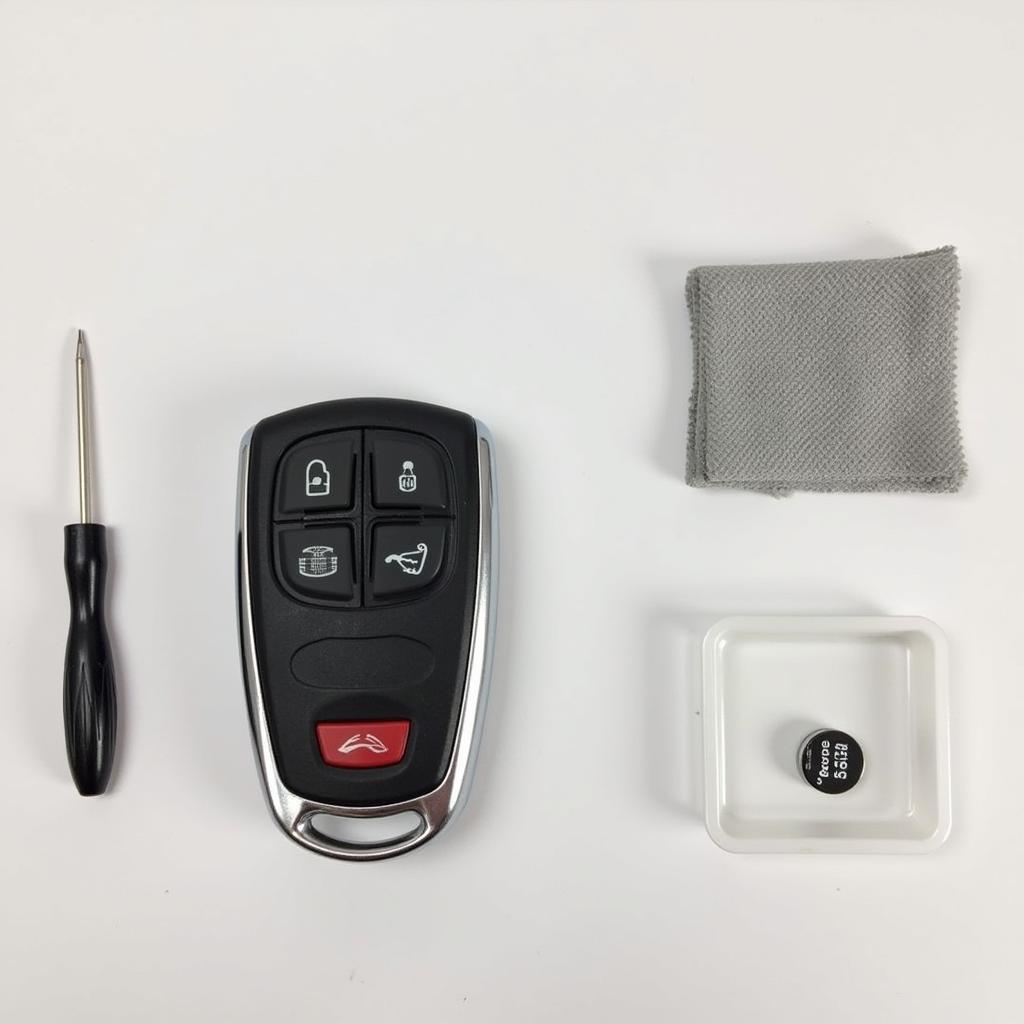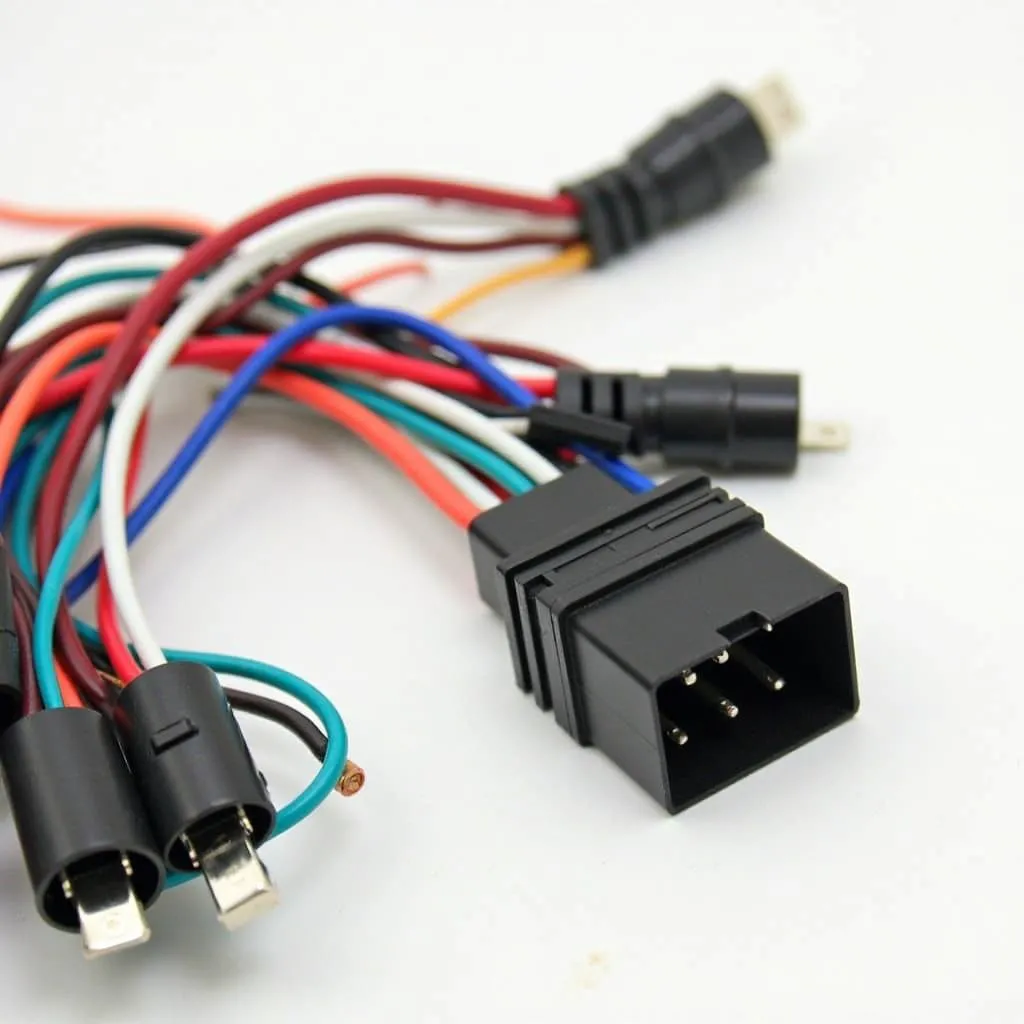Experiencing a flashing brake warning light on your dashboard can be unsettling. While it may not always indicate a critical issue, ignoring it could compromise your safety and lead to costly repairs down the line. This comprehensive guide will delve into the common causes behind occasional brake warning light flashes and provide insights into diagnosis and potential solutions.
Understanding Your Car’s Braking System
Before we explore the causes of a flashing brake warning light, it’s crucial to understand the basics of your car’s braking system. A hydraulic system connects your brake pedal to the brakes in each wheel. When you press the pedal, brake fluid amplifies the force, activating the calipers to clamp the brake pads against the rotors, ultimately slowing down or stopping the vehicle.
Common Causes of Occasional Brake Warning Light Flashes
A flashing brake warning light usually indicates a problem within the braking system that requires attention. Let’s explore some of the most common culprits:
1. Low Brake Fluid Level
One of the most frequent reasons for an occasional brake warning light flash is low brake fluid. As brake pads wear down, the brake fluid level naturally drops. If the fluid level drops significantly, it can trigger the warning light.
What to Do: Check the brake fluid level in the reservoir. If it’s below the minimum mark, carefully top it off with the correct brake fluid type specified in your owner’s manual.
2. Worn Brake Pads
Brake pads are designed to wear down over time. When they become too thin, a sensor embedded within the pad can trigger the brake warning light to flash.
What to Do: If you suspect your brake pads are worn, it’s crucial to have them inspected by a qualified mechanic as soon as possible.
3. Faulty Brake Pad Sensor
Sometimes, the brake pad sensor itself can malfunction, sending a false signal to the warning light.
What to Do: A mechanic can test the sensor to determine if it’s faulty and needs replacement.
4. ABS (Anti-lock Braking System) Issue
A flashing brake warning light might also indicate a problem with the ABS system. This system prevents your wheels from locking up during hard braking.
What to Do: If you suspect an ABS issue, it’s essential to have your vehicle diagnosed by a mechanic specializing in automotive electronics.
5. Issues with the Brake Master Cylinder or Lines
The brake master cylinder is responsible for pressurizing the brake fluid. If there’s a leak or internal problem with the master cylinder or the brake lines, it can lead to a drop in brake fluid pressure and trigger the warning light.
What to Do: A qualified mechanic should inspect the master cylinder and brake lines for leaks or damage.
Remote Diagnostics and Software Solutions for Brake Issues
In today’s technologically advanced automotive landscape, remote diagnostics and software solutions play a vital role in identifying and resolving brake-related problems:
-
Remote Diagnostics: Advanced diagnostic tools allow mechanics to remotely access your vehicle’s computer system, retrieve fault codes, and analyze data related to the braking system. This enables faster and more efficient diagnosis.
-
Software Updates: Car manufacturers often release software updates that can address known issues with the braking system or other electronic components that might be affecting brake performance.
When to Seek Professional Help
While occasional brake warning light flashes might not always indicate a dire situation, it’s crucial to err on the side of caution. If you experience any of the following, seek immediate professional help:
- The brake warning light stays on continuously.
- You feel a soft or spongy brake pedal.
- You hear unusual grinding or squealing noises when applying the brakes.
- Your vehicle pulls to one side when braking.
Conclusion
A flashing brake warning light should never be ignored. By understanding the potential causes and taking prompt action, you can ensure your safety on the road and prevent further damage to your vehicle’s braking system. Remember, when in doubt, consult a qualified mechanic specializing in automotive electronics for expert diagnosis and repair.



